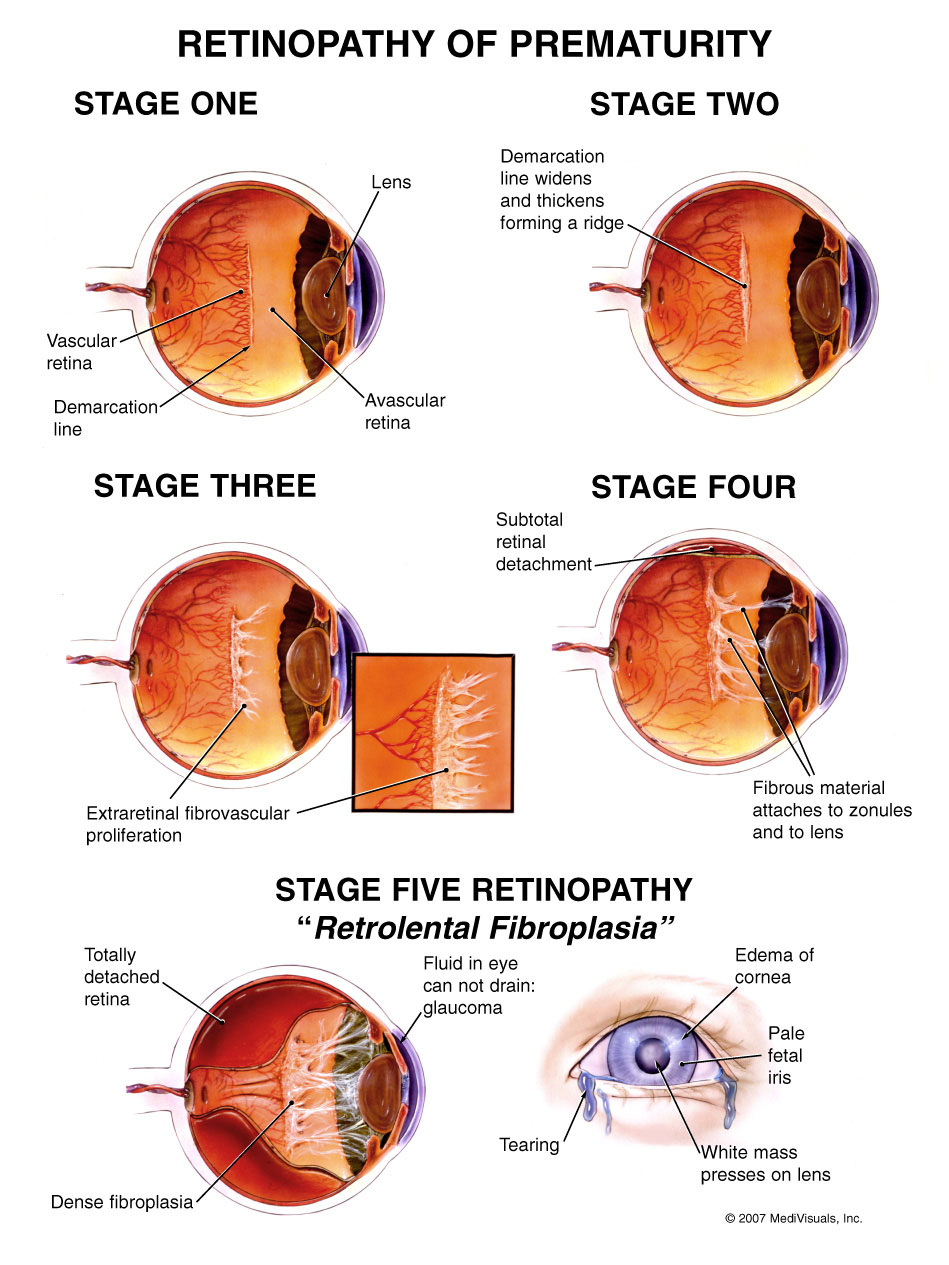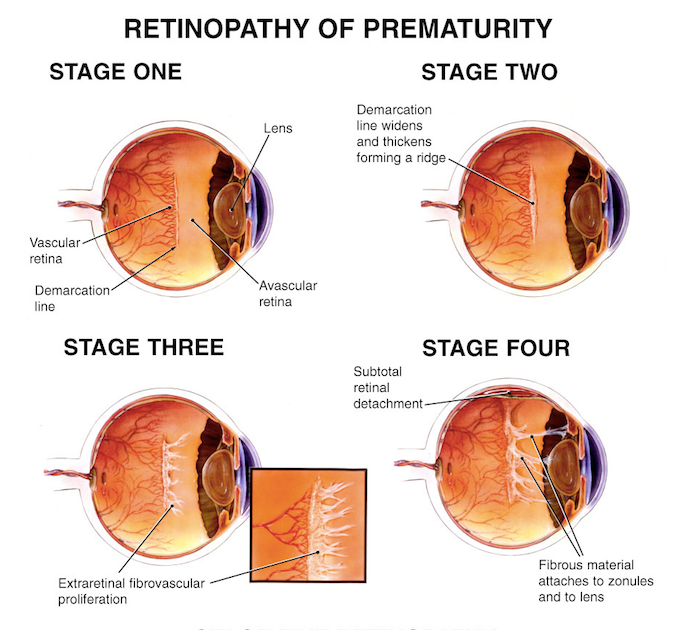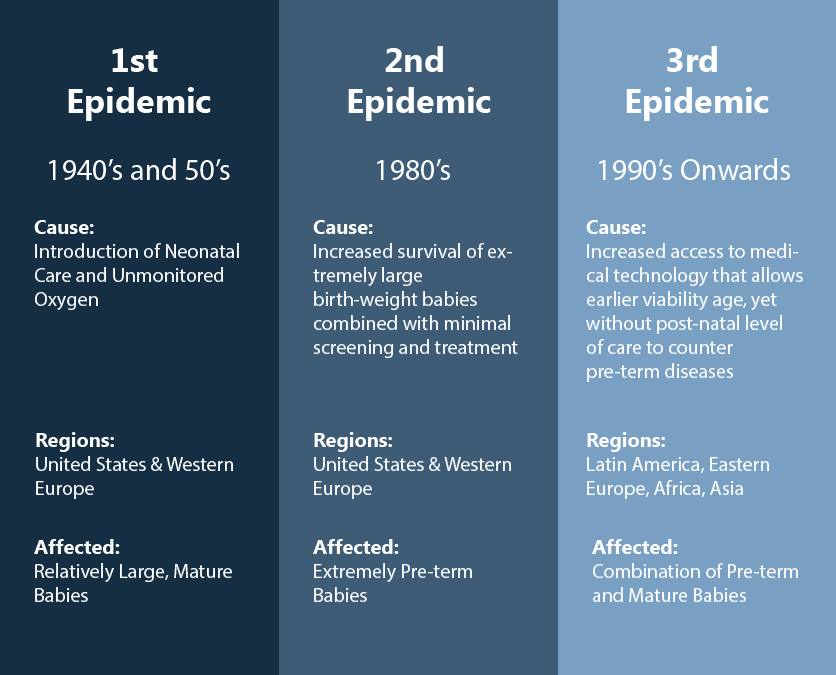ROP is an Epidemic
Preterm babies are born sick and must deal with an abundance of complex health issues. Very often, the blood vessels in their eyes start to grow in ways they’re not supposed to (called ‘abnormal angiogenesis’). If not caught in the early stages and addressed with specialized surgery, it may lead to devastating blindness. This condition is called ‘Retinopathy of Prematurity’, or simply ROP.

ROP Causes Blindness
Retinopathy of Prematurity has several stages of progression. If not caught within initial stages, it is likely to cause total and permanent blindness.
In fact, ROP is so time-sensitive for a newborn baby that if not caught within a 72-hour window, there is risk of irreversible blindness.
ROP Causes Blindness
Retinopathy of Prematurity has several stages of progression. If not caught within initial stages, it will cause total and permanent blindness.
In fact, ROP is so time-sensitive for a newborn baby that if not caught within a 72-hour window, there is risk of irreversible blindness.

History of ROP
We’ve seen ROP before, but changes in medical technology and care have caused it to resurface in new and unexpected ways.
ROP originally came about because preterm medical care became advanced enough that babies could be saved. However, the complications of being alive at such a premature age were beyond medical science’s capabilities. Even developing countries now have the capabilities to keep fragile pre-term babies alive at earlier gestational ages, yet are still without the expertise or access to treatments available for addressing ROP.
Due to a shortage of highly specialized opthamologists and other complicating factors, ROP is still ravaging the sight of preterm babies in the Western and developing world. In short, it’s still everywhere, and getting worse.


